2020 UW–Madison Distinguished Teaching Awards
Thirteen faculty members have been chosen to receive this year’s Distinguished Teaching Awards, an honor that annually recognizes some of UW–Madison’s finest educators. The following testimonials were given, and photographs made, before virtual teaching was instituted in response to COVID-19 — but whatever form instruction might take, this group ranks among the university’s best. While the ceremony originally scheduled for April 7 has been postponed, we honor the winners here, and commend all who are teaching in these challenging times.
Photographs by Jeff Miller and Bryce Richter
Emil Steiger Teaching Award
Paul Block
Associate professor of civil and environmental engineering
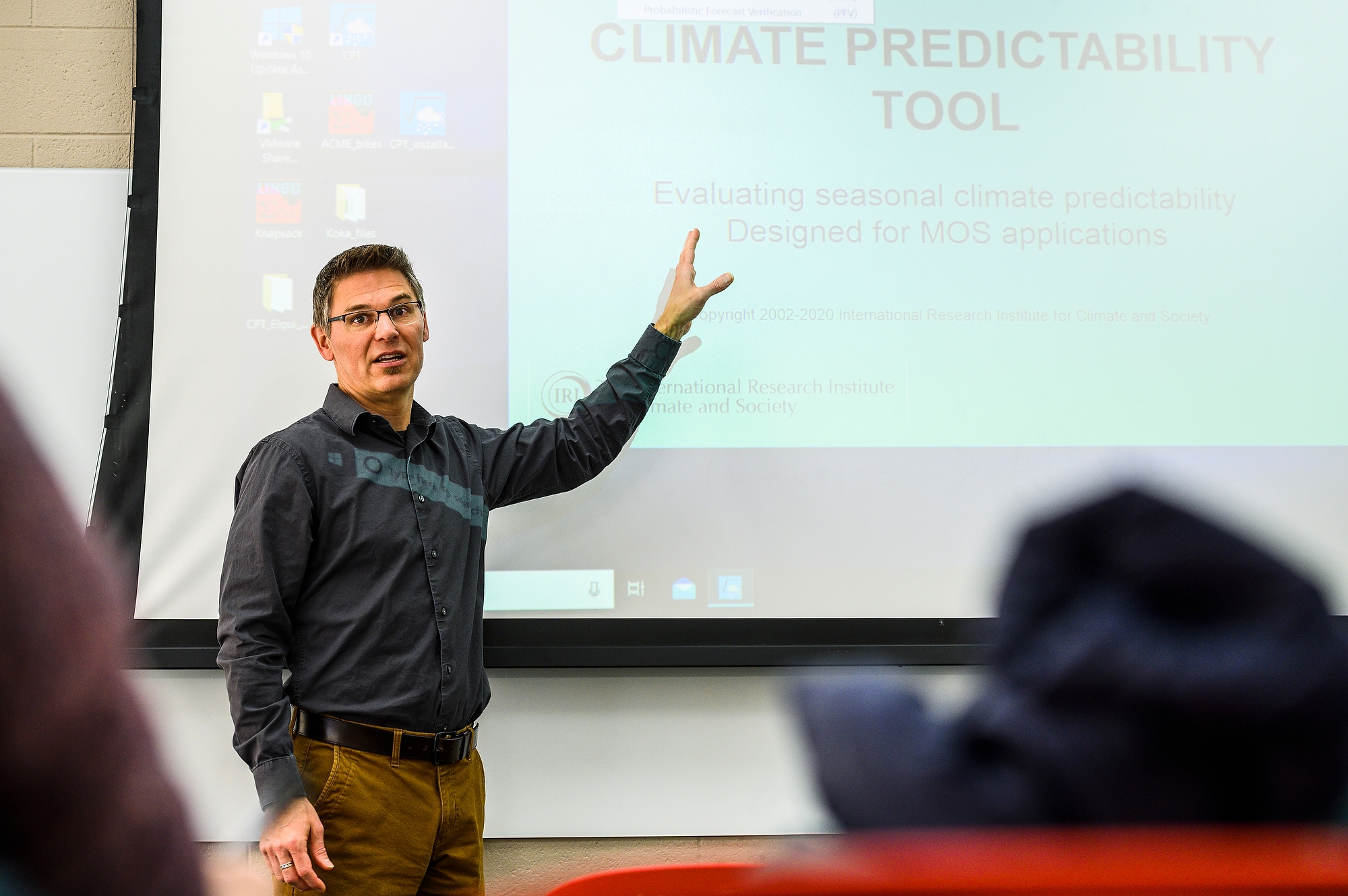
Paul Block teaches graduate students a Hydroclimatology for Water Resources Management class in Engineering Hall. Photo: Jeff Miller
Block has taught each semester since beginning at UW–Madison in 2013 at both the graduate and undergraduate level. He creates an intellectually stimulating classroom environment by combining demonstrations, experiential learning, reinforcement and critical thinking in an interactive setting. Block has modernized the content of several courses and significantly upgraded lab facilities, modules and the number of experiments students do. Fluid Mechanics is widely regarded as one of the more difficult engineering courses, but Block uses demonstrations, experiments and visuals to make it engaging and enjoyable. His research and applications connecting climate prediction and water resources systems management have involved international efforts and collaborations, ranging from Ethiopia to Peru and Chile.
Class of 1955 Teaching Excellence Award
William Brockliss
Associate professor, Classical & Ancient Near Eastern Studies

William Brockliss interprets symbolism in an ancient mosaic in the Roman and Greek collection at the Chazen Museum of Art. Photo: Jeff Miller
Brockliss has a gift for engaging students through discussions, activities and presentations, even in high-enrollment courses like his popular Ancient Greek and Roman Monsters course. He has given presentations on classics and the Latin language to students in elementary and high school, acted as a liaison with Latin teachers from Wisconsin high schools, organized three visit days for high-school students on the UW campus, and taught classes for the Odyssey Project, which allows low-income adults to earn college credit. Brockliss has served as a mentor to students with an interest in teaching high school Latin, with three going on to be certified to teach Latin and now employed in Wisconsin high schools.
Chancellor’s Distinguished Teaching Award
Samuel Butcher
Professor of biochemistry
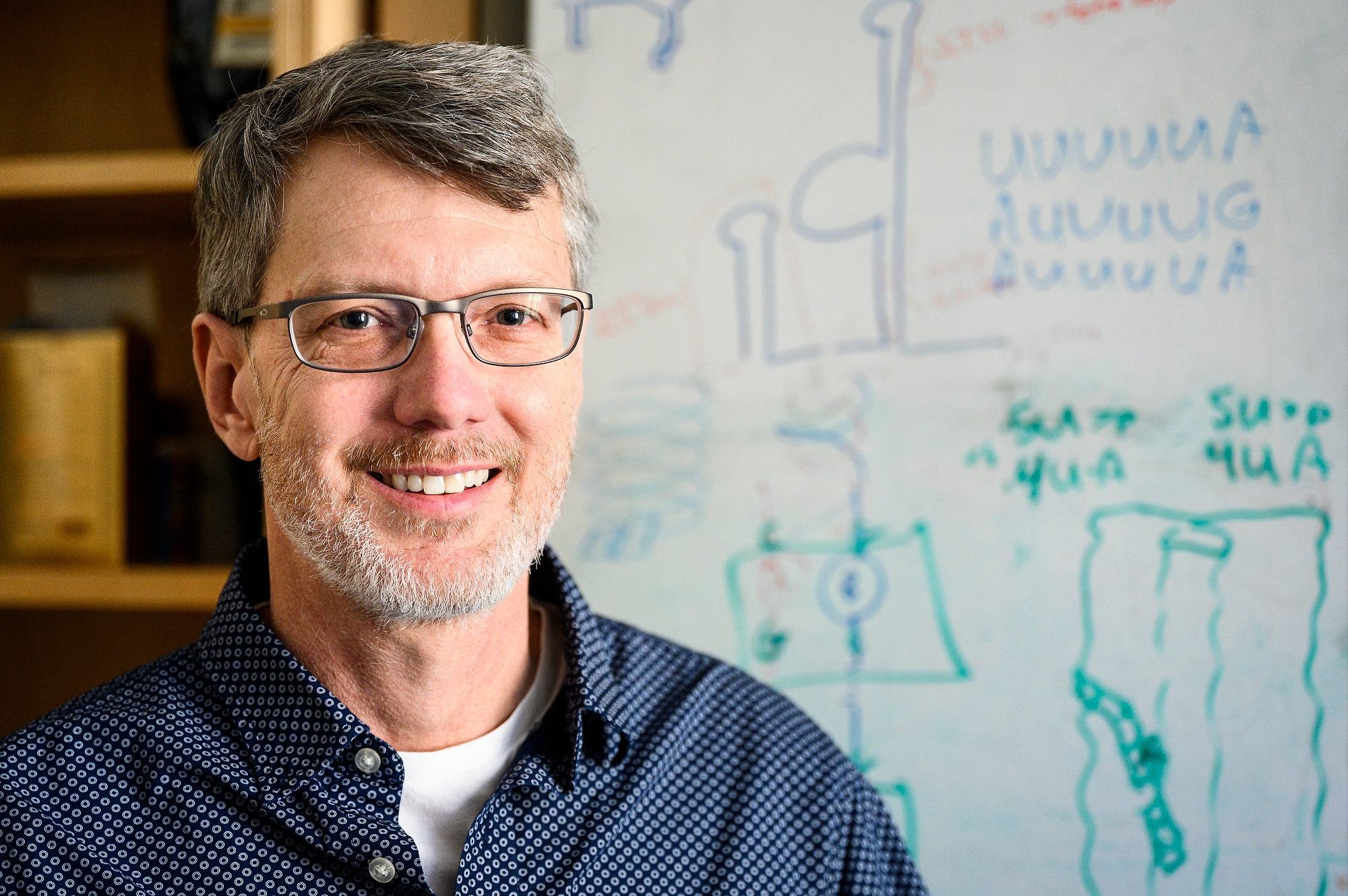
Samuel Butcher is pictured in his office at the Biochemistry Labs. Photo: Jeff Miller
Butcher has been teaching Introduction to Biochemistry for almost two decades, with enrollment growing from 200 students per semester to more than 600. He has been instrumental in reshaping the course with the goal of teaching students to think like a scientist. They’re focused on learning concepts rather than memorizing facts. Butcher is also committed to accessibility and led an initiative to add more sections of Biochem 501, including courses in the summer and online to increase access. He has been a leader in using technology to make the course material more accessible for all students, regardless of disability or learning style.
Chancellor’s Teaching Innovation Award
Shuchi Chawla
Professor of computer science
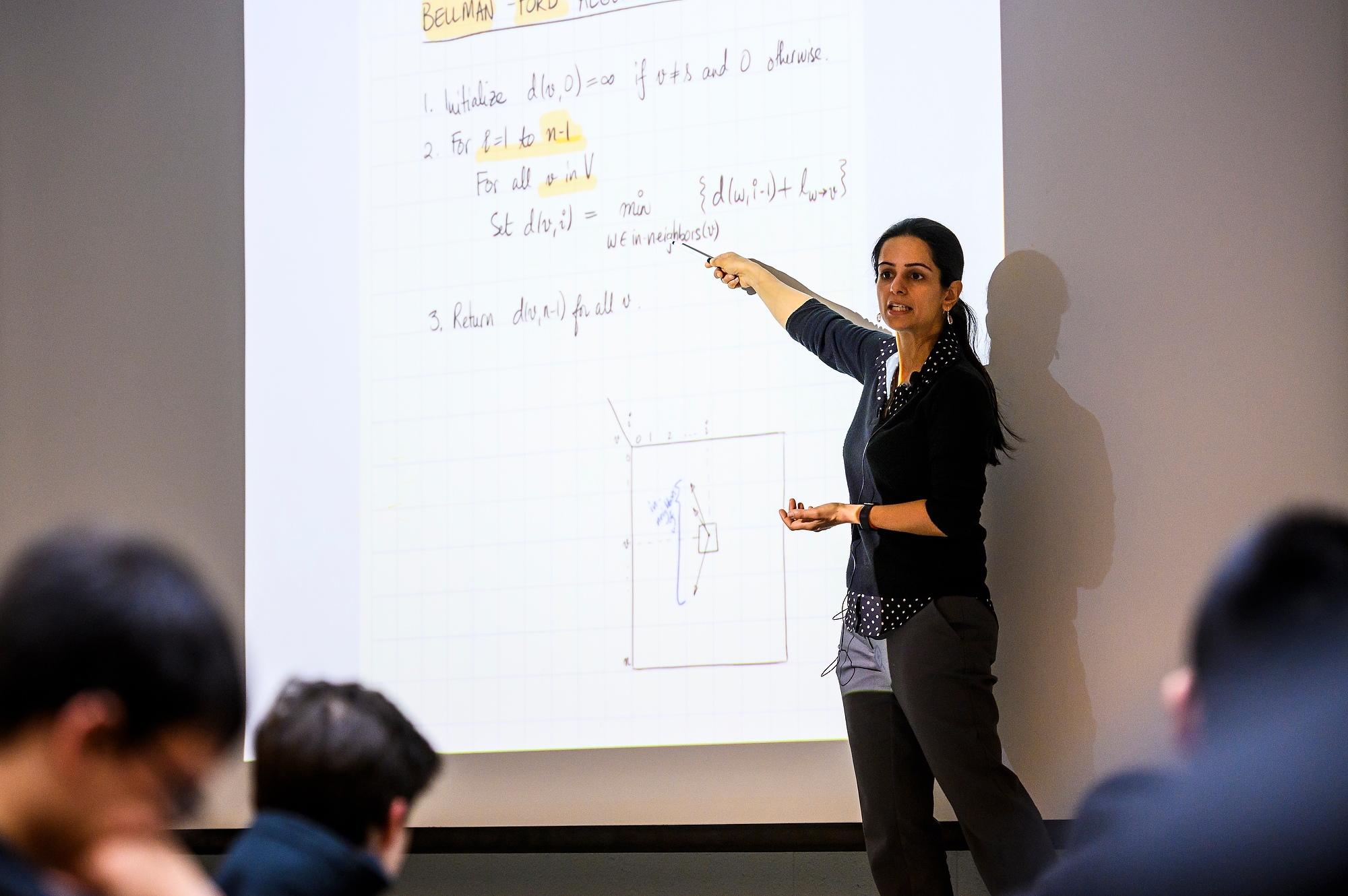
Shuchi Chawla teaches students an Introduction to Algorithms class in Noland Hall. Photo: Jeff Miller
Chawla has risen to the challenge in teaching Computer Science 577: Introduction to Algorithms. When she began teaching the course in 2006, 30 students were enrolled. Today, there are more than 300. To ensure that today’s students receive the same high-quality experience as their predecessors, she has restructured the pace of the course, held frequent office hours, and brought in peer mentors (undergrads who have recently taken the course) so that students who are struggling have a variety of resources available when they need help. The peer mentor system has been so successful it has been adopted for other Computer Science courses.
William H. Kiekhofer Teaching Award
Kathleen Culver
Associate professor of journalism and mass communication
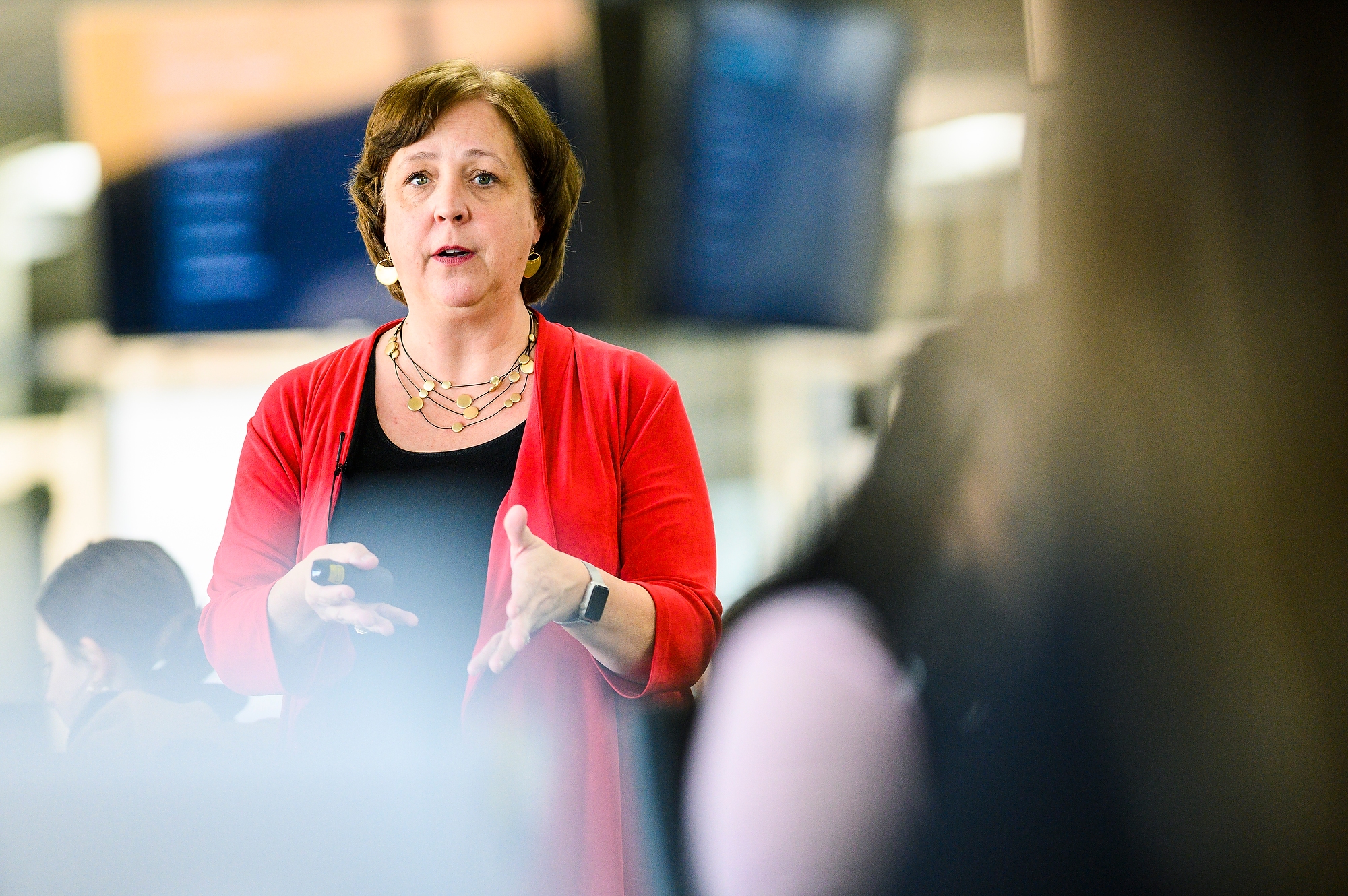
Kathleen Culver teaches a Journalism 563: Law of Mass Communication class in Helen C. White Hall. Photo: Jeff Miller
As the driving force behind Journalism 202: Mass Media Practices, Culver is responsible for giving students a solid foundation for success in the rapidly changing media landscape. Her effectiveness is evident in the words of the many students she has guided and mentored, both in and out of the classroom. Culver has trained media educators from across the country at the Poynter Institute for Media Studies, and as director of the Center for Journalism Ethics, she serves as a source for reporters on questions of journalism ethics, digital innovations in journalism, and other contemporary issues.
Chancellor’s Inclusive Excellence Award
Ramzi Fawaz
Associate professor of English
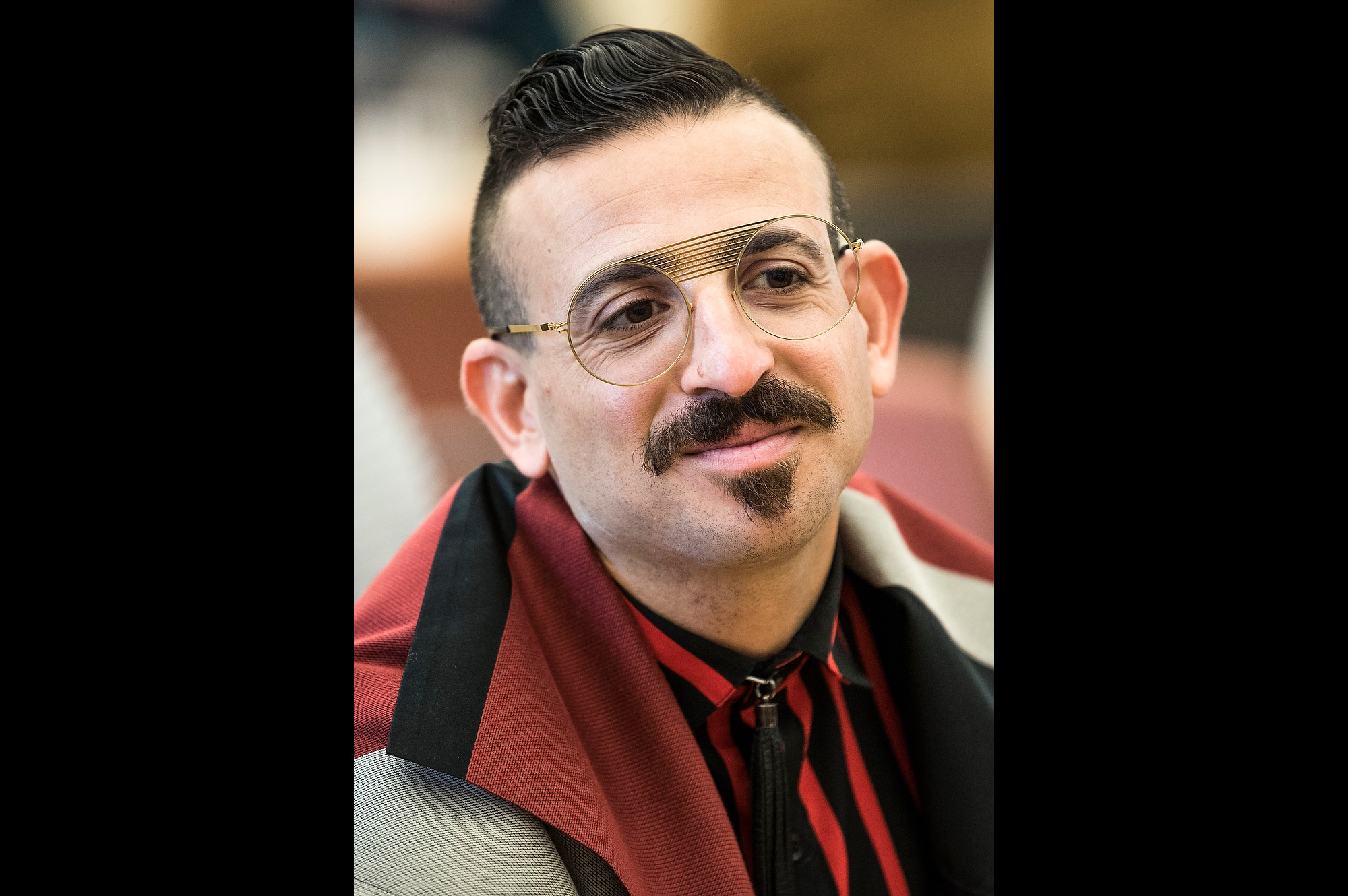
Ramzi Fawaz is pictured at Stanford University, where he is currently on leave as a 2019-2020 faculty fellow. By Steve Castillo, courtesy of Stanford Humanities Center
Fawaz has added many innovative courses to the English department’s offerings, with titles such as “Queer about Comics,” “Gay is Good: Queer Visions of Freedom Since the 1970s” and “America in the 1990s.” In an open, welcoming setting that encourages students to share their thoughts and feelings about the course material, he challenges students to step out of their comfort zones and examine their views of the world. Fawaz’s influence on teaching extends well beyond the university. Among his many outreach activities, he frequently participates in interviews and panel discussions on teaching and has written a widely read article on trigger warnings in the classroom.
Chancellor’s Distinguished Teaching Award
Christine Garlough
Professor of gender and women’s studies
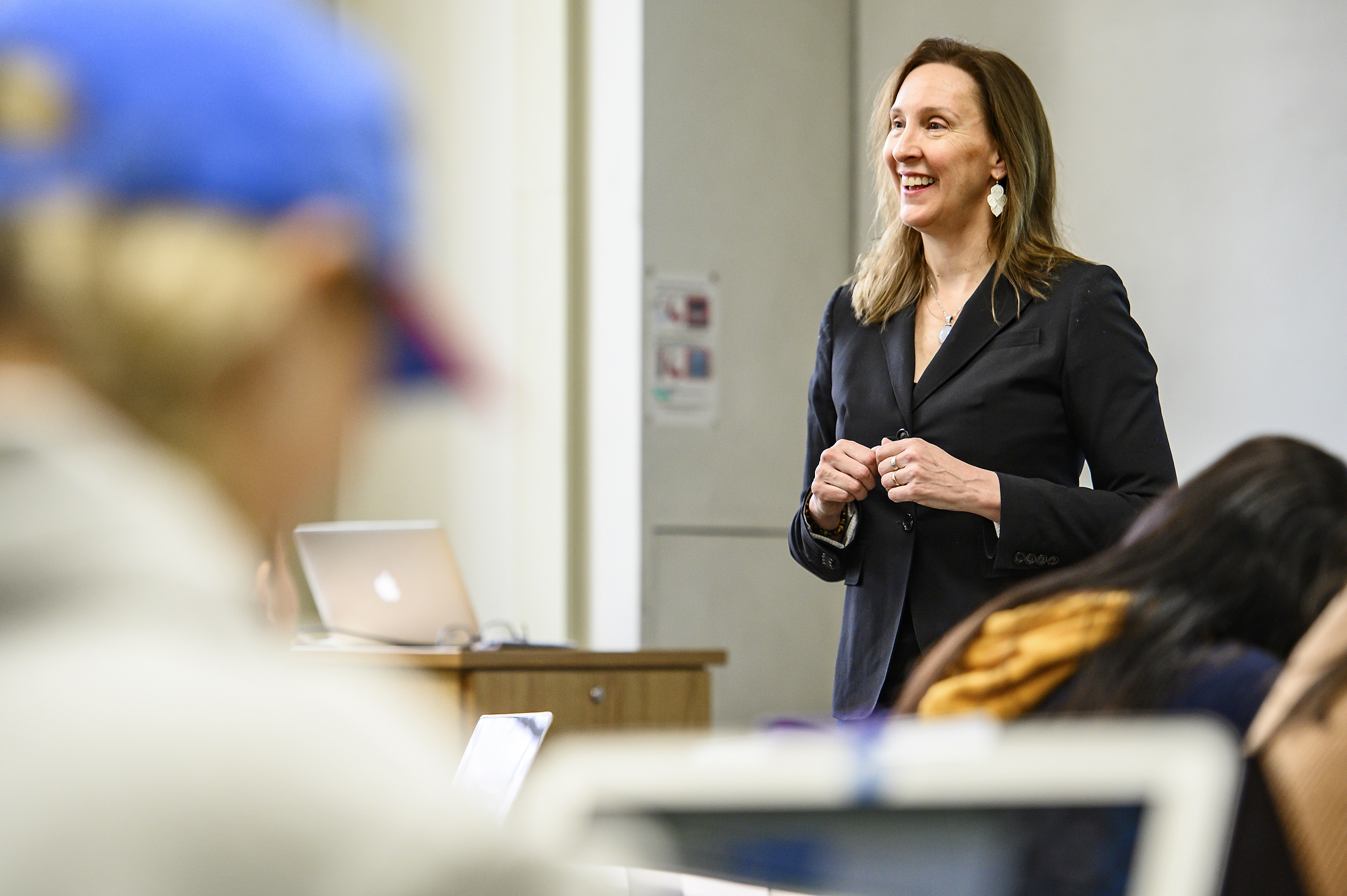
Christine Garlough talks with students during a Gender and Women’s Studies 449 course in Chamberlin Hall. Photo: Bryce Richter
Garlough believes classrooms should address real-world issues with rigor and compassion, guiding students to pursue knowledge and develop their own voices. She inspires critical thinking and self-reflection in a supportive learning environment. Her approach mixes lecture, discussion and small group participation. Students in large lectures can be disinclined to connect with others in a sea of strangers, but Garlough regularly creates opportunities for dialogue and engaged listening. Students eagerly engage with others every class period and even change seats over the course of the semester so they can benefit from discussion with a variety of classmates holding different perspectives.
Chancellor’s Distinguished Teaching Award
Erica Halverson
Professor of curriculum and instruction
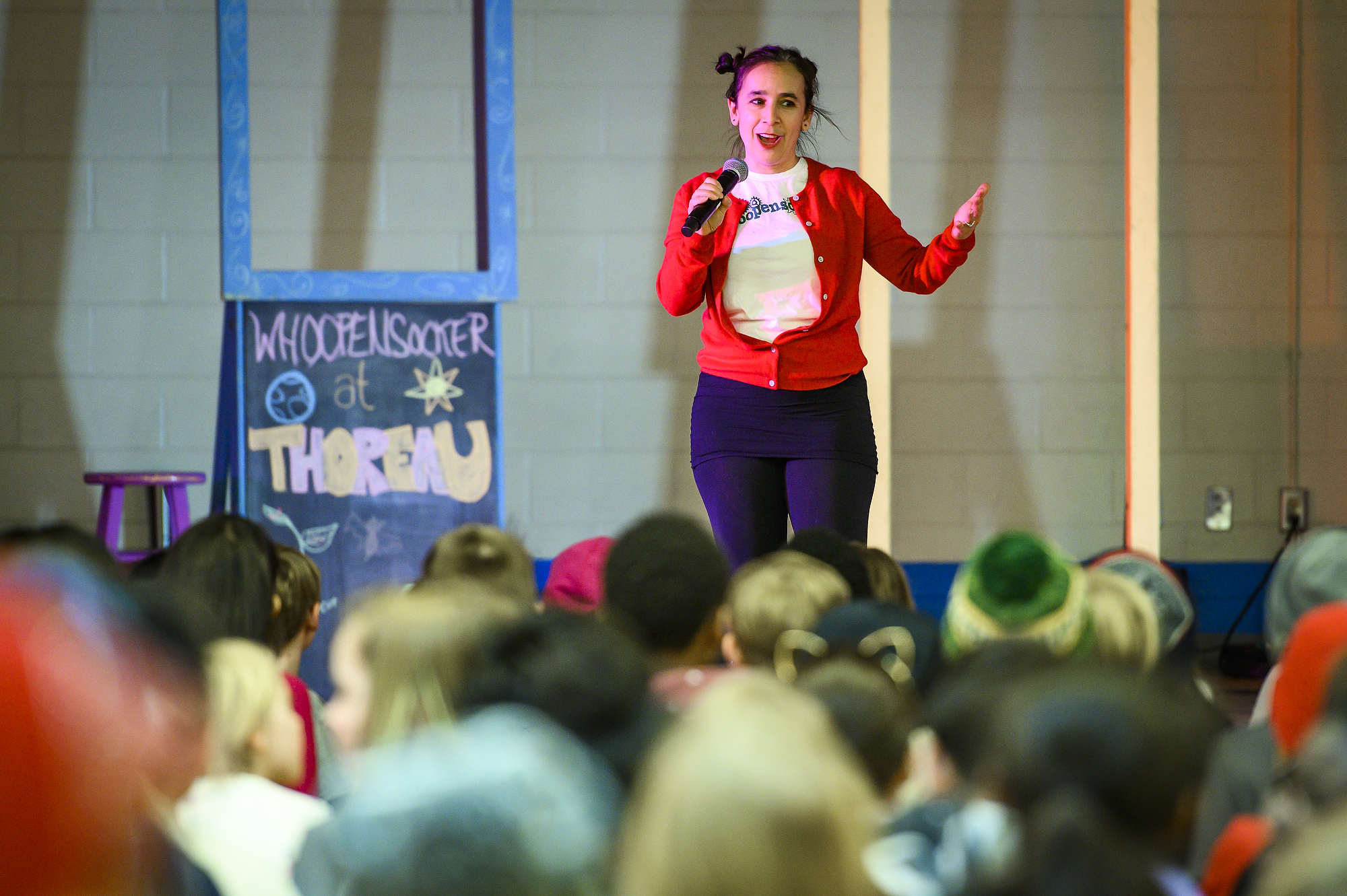
Erica Halverson talks with students at Thoreau Elementary School in Madison during a Whoopensocker outreach program event. Photo: Bryce Richter
Halverson’s work focuses on teaching and learning in and through the arts. From First-Year Interest Groups to graduate-level courses, she is known for challenging her students to understand themselves and their world differently. She designed and teaches “Arts Integration for Teaching and Learning,” a unique course that engages future elementary school teachers in understanding and using various art forms in their teaching. The students learn to create art that represents their experiences and to think about how they might bring the arts into their future classrooms — not only for the arts’ own sake, but also in support of core concepts like reading and math.
Excellence in Community-Based Learning Teaching Award
Andrea Hicks
Assistant professor of civil and environmental engineering
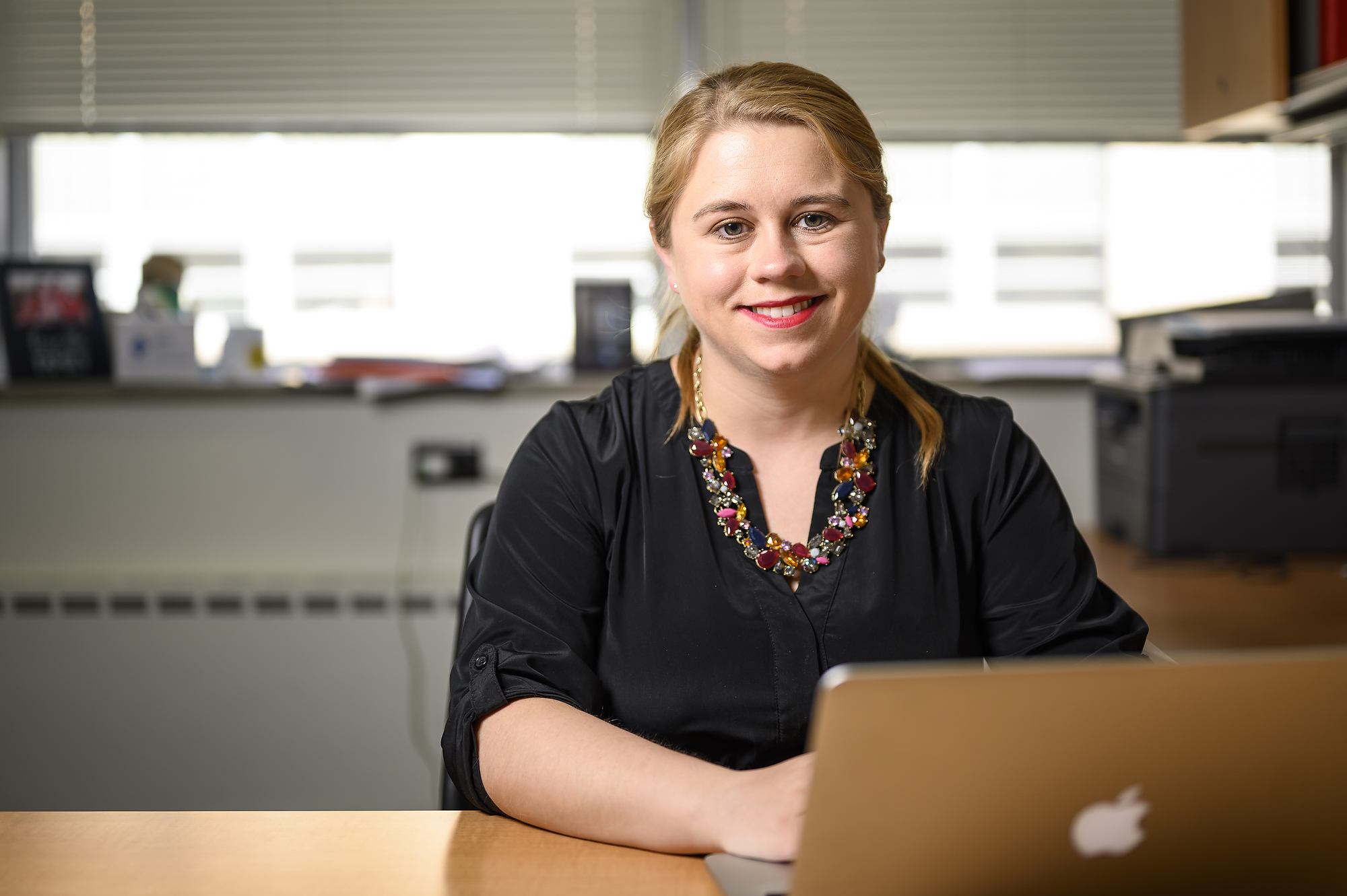
Andrea Hicks is pictured in her office in Engineering Hall. Photo: Bryce Richter
Hicks used a $5,000 grant from the Morgridge Center for Public Service to turn her Environmental Sustainability Engineering course into a community-based learning course. She works with the UniverCity Year program, which connects the UW with Wisconsin communities, to find class projects. Her students then work on problems identified by counties, villages and school districts. Students evaluate the problem and potential solutions using the three paradigms of sustainability: environment, economy and society. Community partners use the students’ work to advance projects in areas such as renewable energy and wastewater treatment. Students love the opportunity to take what they’ve learned in the classroom and apply it to real-life problems.
Chancellor’s Distinguished Teaching Award
Irena Knezevic
Professor of electrical and computer engineering
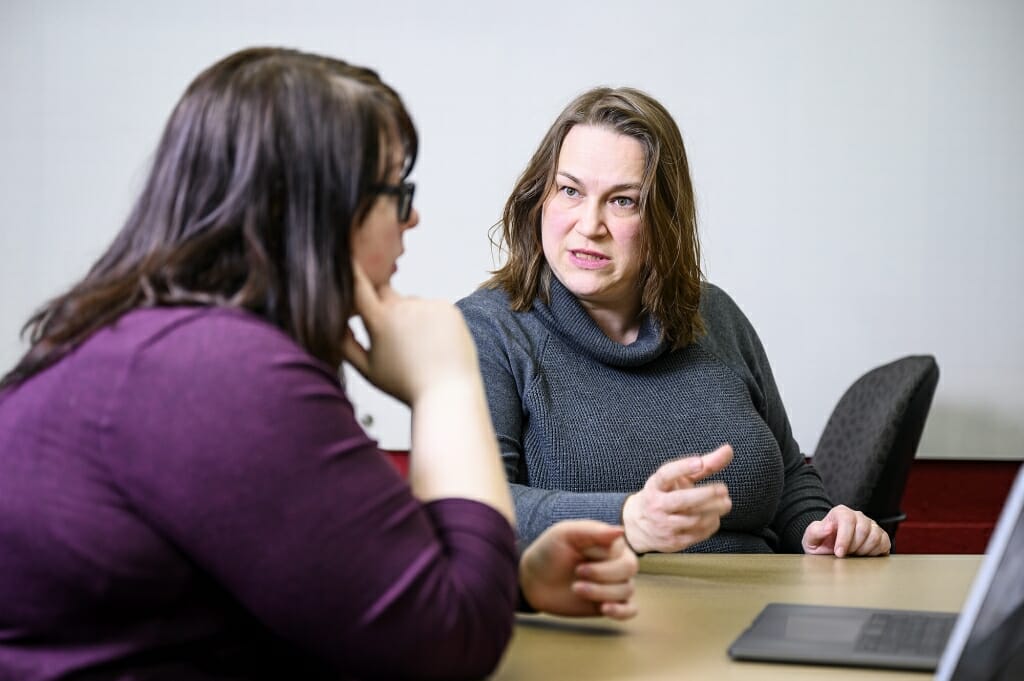
Irena Knezevic talks with a graduate student during a progress check-in meeting. Photo: Bryce Richter
ECE 235: Introduction to Solid State Electronics is a required course with a large enrollment and difficult subject matter. But 10 years ago, Knezevic reimagined how the fundamentals of quantum mechanics could be introduced to undergraduate engineering learners and revamped the course. She developed a successful approach that’s been adopted by everyone who teaches it. She began redesigning the course before she had been granted tenure — a time when junior faculty typically devote most of their time to research. Her reward was the knowledge that students would more easily master difficult material and would approach the course with enthusiasm rather than dread.
Chancellor’s Inclusive Excellence Award
Lori Lopez
Associate professor of communication arts
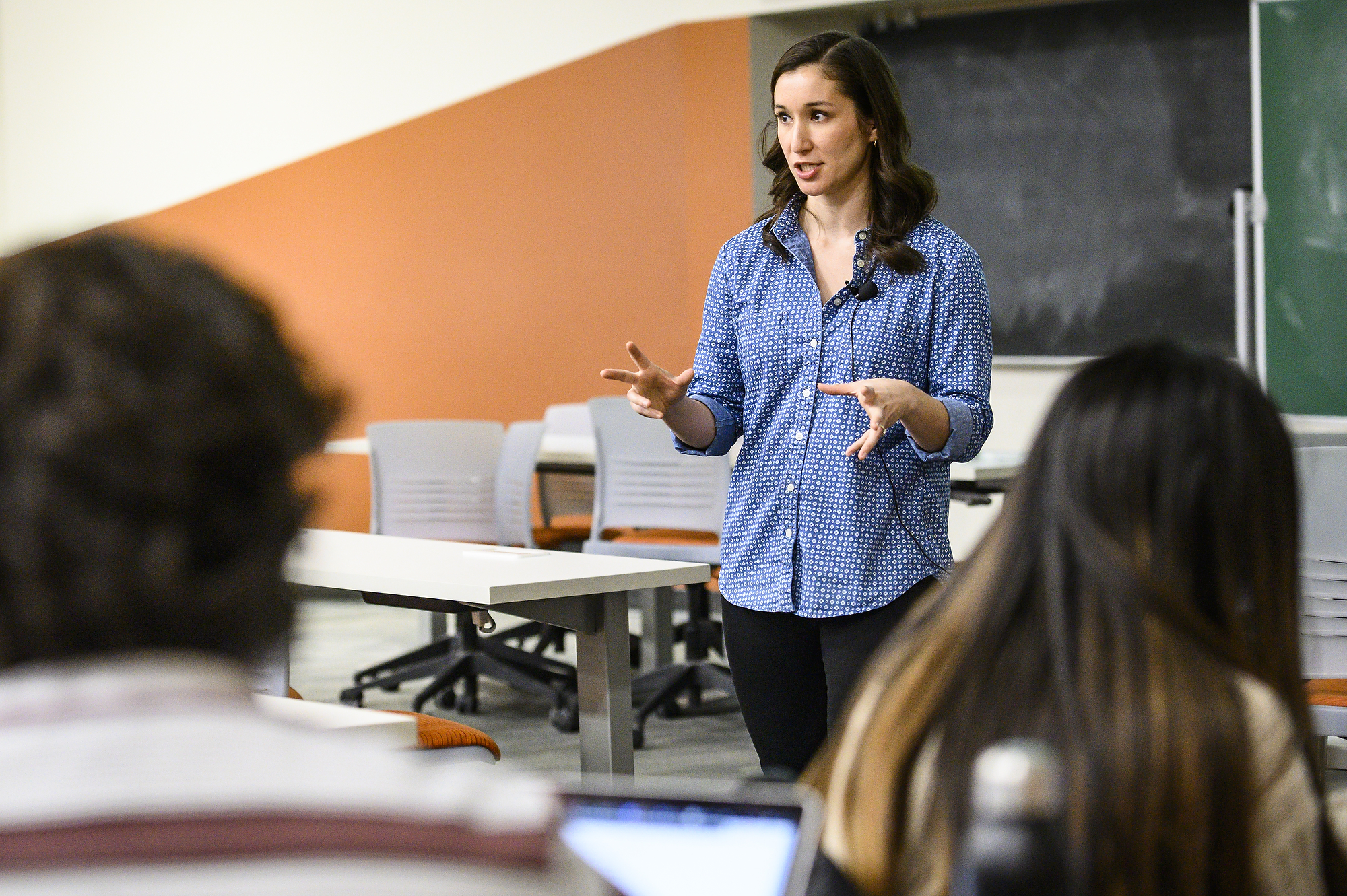
Lori Lopez talks with students during a Communication Arts 250 course in the Educational Sciences Building. Photo: Bryce Richter
In teaching everything from large introductory courses to small graduate seminars, Lopez has earned high marks and glowing comments from students for her approach to controversial topics such as racism. As the creator and chair of her department’s Diversity and Equity Committee, she has added mini trainings to monthly department meetings, on topics such as trans-inclusive pedagogy, universal design, diversifying the syllabus, and diversity accommodations. Lopez is also committed to creating opportunities for learning outside of the classroom and created Madison’s Asian American Media Spotlight, a film festival that invites filmmakers from across the country to screen their films on campus and engage in discussions with students.
Chancellor’s Distinguished Teaching Award
Jennifer Ratner-Rosenhagen
Professor of history
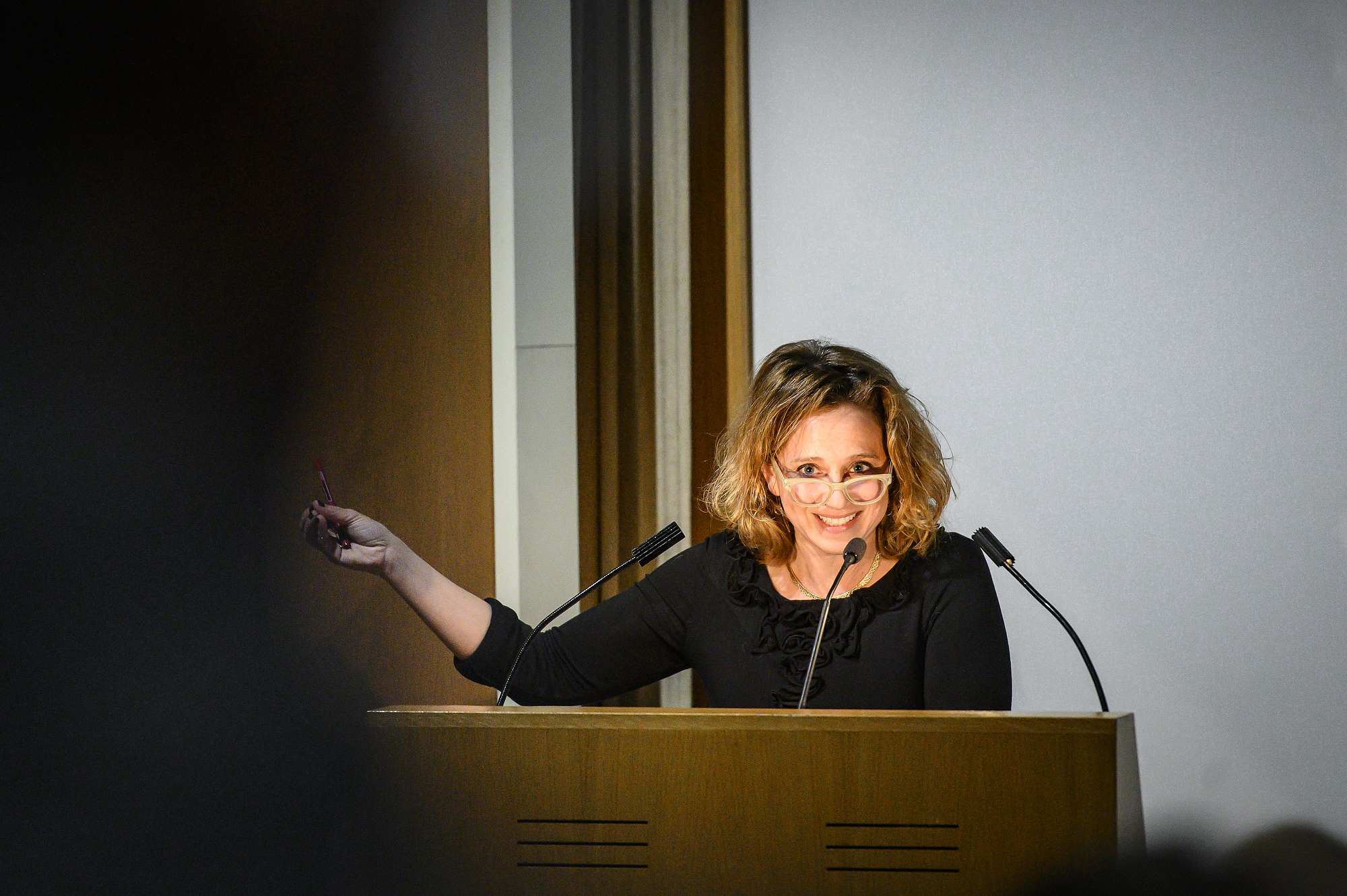
Jennifer Ratner-Rosenhagen talks with audience members during a public lecture in the Elvehjem Building. Photo: Bryce Richter
Ratner-Rosenhagen teaches U.S. intellectual history — a topic she acknowledges might seem forbidding, arcane and dull to undergrads. But she brings it to life and gives her students the confidence to believe that they can do important intellectual work. Her innovative undergraduate courses build on students’ interests and guide them in thinking about how key ideas in U.S. intellectual history relate to their own lives. In her course titled “A History of Your Parents’ Generation: 1970s-90s,” students interview their parents about their memories of that time. Outside the classroom, she founded the Intellectual History Group — grad students and faculty who meet to discuss books, articles and dissertation chapters.
Van Hise Outreach Teaching Award
Kate Vieira
Associate professor of curriculum and instruction

Kate Vieira talks with students during a Curriculum and Instruction 596 class session in the Teacher Education Building. Photo: Bryce Richter
Vieira’s work focuses on issues of literacy among everyday people, especially those at the margins of society. She explores literacy and writing as a means of social change. Her outreach work has taken her to Colombia, where she has worked with community members using writing to help people build peace after the violence of a decades-long civil war. Locally, she has forged connections between South American educators and the Madison community. Two of her collaborators from Colombia visited last May to co-lead workshops at East and West high schools, meet with local Latinx writers, and share pedagogical practices with representatives of the Greater Madison Writing Project.
Tags: faculty, faculty awards, recent sightings




